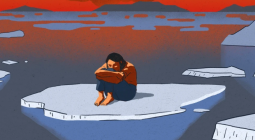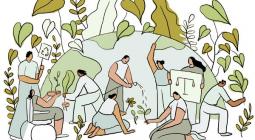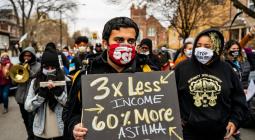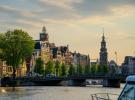In Brussels, green still means white.
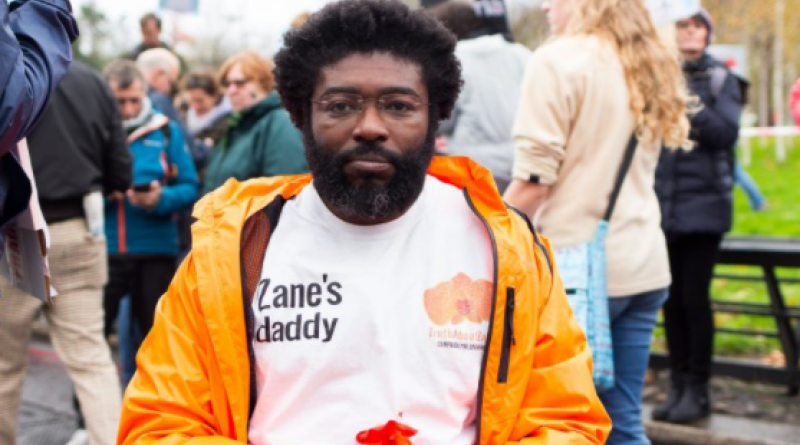
The EU bubble has a whiteness problem – and the green sector is complicit, write Chloé Mikolajczak and Marianna Tuokkola.
Chloé Mikolajczak and Marianna Tuokkola are authors of The Burning Case, a youth-led podcast aiming at mainstreaming the links between EU politics and pressing issues such as climate breakdown and social justice.
The #BrusselsSoWhite movement and racial justice activists have been saying it for years: the Brussels bubble is a colour-blind place of white privilege. The European Commission is taking shivery steps towards anti-racism, with its action plan that was published last September and a summit against racism this Friday 19 March.
The equally white environmental movement seems to be slowly waking up to the issue as well. This is the moment for the green NGOs in Brussels to take action and truly commit to anti-racism and intersectionality.
Browse the websites of the climate and environmental NGOs in Brussels and you’ll see they’re overwhelmingly white. The green movement, which is playing an increasingly important role in the context of the European Green Deal, does not represent the EU population fairly, nor the people who are mostly affected by the climate crisis.
As if the minorities, that make up at least 10-15 % of the EU population, are simply forbidden from entering the sacred grounds of the EU bubble in any capacity, and especially into leadership roles.
It does not only mean that racialised communities do not have access to these organisations, they’re also denied the chance to influence the policies that will affect them, effectively leading to legislation that ignores their needs and expertise.
People from racialised communities, who are already systematically marginalised, carry the heaviest burden of the climate and ecological crisis, which furthermore exacerbates already existing inequalities.
Studies show that environmental injustice, including climate change, has a disproportionate impact on communities of colour and low-income communities both in the global north and around the world.
In Europe, a recent study by the European Environmental Bureau highlighted a pattern of systemic and systematic discrimination against many Roma communities, which pushes them out into marginal and polluted lands and neighbourhoods, and deprives them of access to basic environmental services and public utilities.
Those who are most affected by the climate crisis should not only be at the centre in the fight against it but leading it.
How can organisations address the climate crisis without the experience and fundamental understanding of the issues that are at the core of it: environmental racism and systemic oppression?
Even though Brussels green NGOs don’t have the power to erase structural racism from Europe, there are steps our sector can take. Mandatory anti-racism training is essential, but it is only a start.
Every NGO should have a strategic and public anti-racist policy that addresses internal processes like recruitment, but also events and subcontractors, as well as policy work and communications.
All aspects of work, internal and public, need to be restructured from an antiracist, anti-capitalist, anti-imperialist and anti-colonial perspective. Workplaces must be safe spaces for people of colour where everyone is truly included and not tokenised. Affirmative action is needed to ensure more people from racialised communities enter leadership positions.
We are challenging the green NGOs in Brussels and us as a sector to do better. To lead by example and to walk the talk even, and especially, when it’s uncomfortable. It requires unlearning, restructuring, sharing power and giving space. It is a work in progress and we need to start today.
Our #GreenBrusselsSoWhite campaign only repeats what anti-racist and racial justice activists have been saying for years. The petition provides concrete actions for the non-profit sector and has been developed together with activists from racialised communities.
We hope that together we can start rebuilding the work and organisational culture in the green field to be more intersectional, anti-racist and inclusive.
16 March 2021
Euractiv

